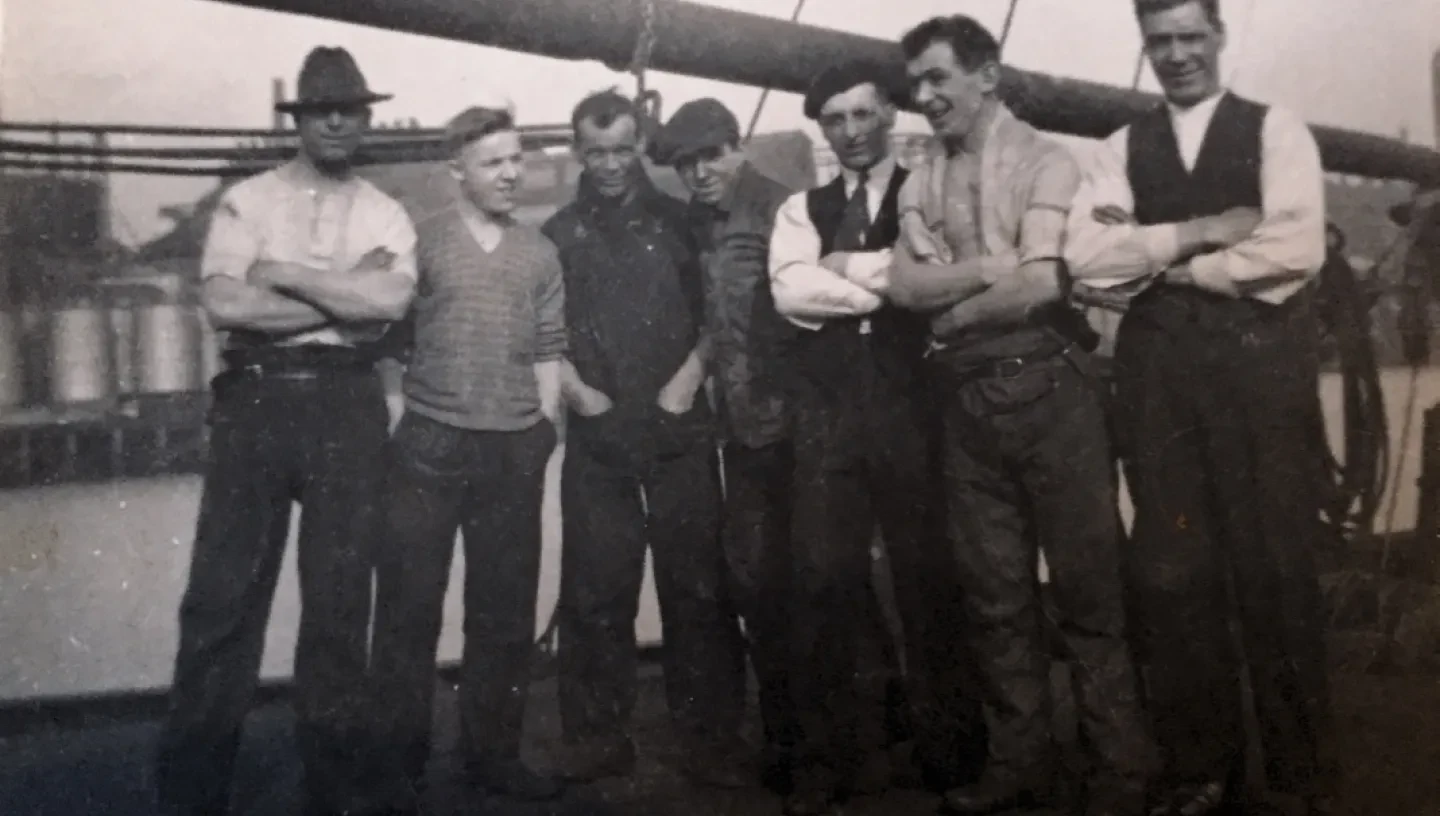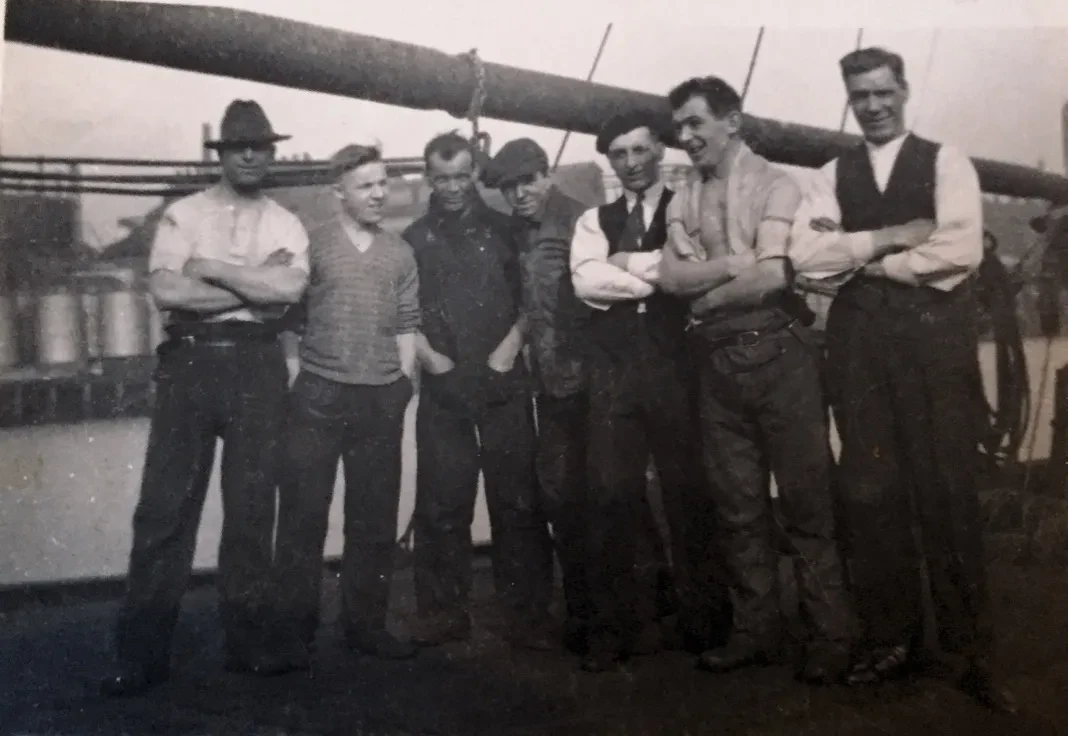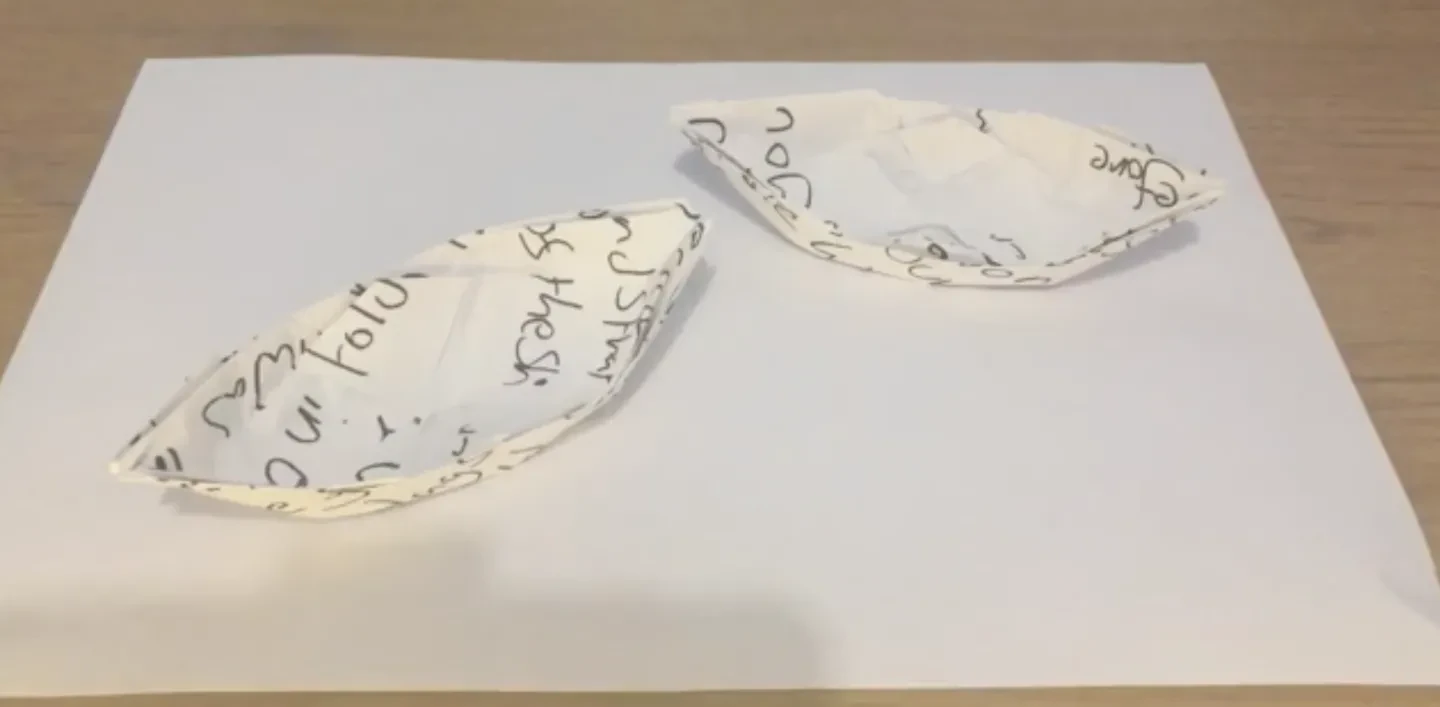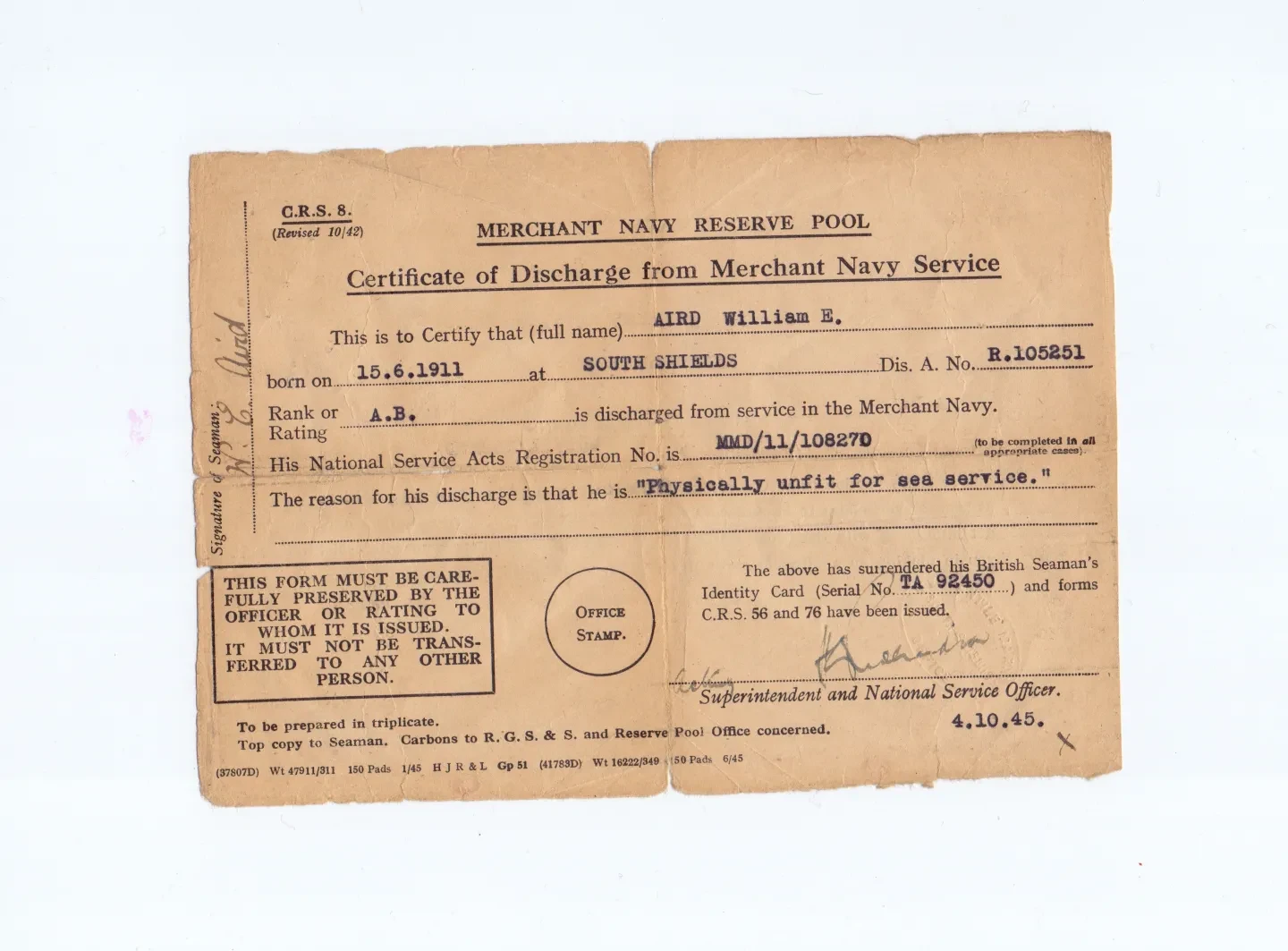
For Disability History Month, we asked artist Letty McHugh to create an activity for families to try at home. This craft is inspired by Letty's own connection to the maritime world and by journals within the Museum's archive.
I’ve got an old book of important dates that used to belong to my Great Grandma Billy. It notes down such important occasions as 'Trip to the Norfolk Broads', 'Kim the Dog Born' and 'Billy finger off'.
This last event is the date her husband (Grandad Billy as he was known to me) had two fingers amputated following a nasty accident while sailing with the Merchant Navy during WWII. When he finally left hospital, his hands were still so badly injured after the accident that a nurse tucked his train ticket into the folds of his bandages, so he could show it to anyone who needed to see it on his journey home.
Grandad Billy couldn’t work for three years after his accident. In that time, he started knitting to rehabilitate his hands, ultimately making endless pairs of chunky hard slippers for his entire family.

William Aird - An image shared by Letty McHugh
I come from a huge close family, I grew up with Grandad Billy telling me stories about his time in the Merchant Navy, his accident, everything that came after.
A few things really stick in my mind: when he was working on the Arctic Convoys and he and a friend stole extra warm coats set aside for officers. Or the time his cousin told him about a job going on a ship taking coal from London to Newcastle: Grandad Billy turned the job down and advised his cousin against taking it too. In his opinion, the ship wasn’t seaworthy. Tragically, the ship was lost, and his cousin killed.
I had all these stories in my head when a complication with my own disability, a chronic illness called MS, affected how I used my hands and stopped me working. I was inspired by Grandad Billy, the challenges he faced and everything he overcame. I started work on an art project called Seaworthy Vessel. Just like Grandad Billy had knit boats to rehabilitate his hands, I started folding origami boats to rehabilitate mine.
When I look at a ship at sea, I think about how small and unlikely they seem set against the vast and wild ocean. It makes me think about people, and how tiny and unlikely we are set against the vast world, all the unexpected challenges we face that we never see coming.

When I started working on this piece for the National Maritime Museum, I did some reading in their archives. I was amazed by the ordinary details human lives at sea that are recorded. Reading the letters from 1689 requesting funds to mend ships, it struck me anew that if it is in any way possible people will find a way to keep going. We make repairs. It is in our nature to adapt. All of us have overcome something.

Discharge papers for William Aird - shared by Letty McHugh
Think back right now to a time you thought something was going to be impossible. It could be a small thing (For me that would be meeting every deadline I’ve ever been set, from my schoolwork to this article). Or it could be a big thing (picking up the pieces after I was diagnosed with MS). When we’ve achieved things, we tend to devalue them or explain them away. I know I do.
I want you to take a minute to remember your impossible thing, remember how hard it seemed before you did it, and just take a little bit of time to be proud of yourself. You did that hard thing.
Make your own origami boat
In this workshop I’m going to teach you to make your own origami boat.
Before you do that, I encourage you to write, draw, whatever, just put something on your piece of paper to remind you of the hard things you’ve overcome. It’s just for you so you can be honest; once it’s folded no one will be able to read what you’ve put.
Then keep it forever as a reminder or float your boat out to sea or do whatever you like with it. Just remember, the next time you are faced with something that feels like it will be impossible, you have done hard things before and you can do this too.